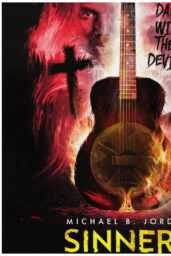Luca Guadagnino, known for his visually striking films like Call Me By Your Name and Suspiria, is taking on what might be his most ambitious and controversial project yet: a remake of American Psycho. The original 2000 film, directed by Mary Harron and based on Bret Easton Ellis’ novel, featured an unforgettable Christian Bale as Patrick Bateman, the charming yet psychopathic Wall Street banker whose life is consumed by materialism, violence, and superficiality. Guadagnino’s version, written by Scott Z. Burns, aims to reboot the story for the modern age, offering a fresh take on Bateman’s character and the world he inhabits.
When Harron’s American Psycho first hit theaters, it was met with outrage, particularly from feminist groups who condemned its graphic depictions of violence against women. Yet, the film was more than just a shock piece—it was a satirical, biting critique of consumer culture, using Bateman’s misogyny and obsession with status as a reflection of society’s darkest impulses. The movie’s reception only grew in complexity over time, becoming a cult classic that questioned the blurred lines between reality and facade in a world obsessed with appearances.
Guadagnino’s remake raises the question: how will the new film address these themes in today’s socio-political climate? In an era that has seen the rise of movements like #MeToo and ongoing debates about toxic masculinity, will the reboot remain true to the story’s satirical roots, or will it try to dodge controversy by softening its edges? Given Guadagnino’s history of not shying away from provocative themes, there’s a good chance he will lean into the novel’s most unsettling aspects to once again challenge audiences.
With an already packed slate that includes projects like The Lord of the Flies and Buddenbrooks, Guadagnino’s choice to tackle American Psycho could either be a masterstroke of reinterpretation or another example of Hollywood’s tendency to recycle iconic films. Fans of the original hope that his unique touch will bring something new to the table rather than just rehashing past glories.
The original film’s forgettable sequel, American Psycho 2 (2002), showed that merely using the title isn’t enough to recapture the magic. Hopefully, Guadagnino’s remake will understand what made the first film resonate and push the boundaries even further.
The decision to remake American Psycho is both exciting and risky. Guadagnino’s artistic vision could elevate the material to new heights, but he will need to walk a fine line between honoring the original’s bold critique of consumerism and adapting it for a generation that’s grown up with a different set of social norms. If he succeeds, it could be a cinematic event that redefines the cult classic for modern audiences.
Do you think Guadagnino can do justice to the American Psycho remake, or is this just another unnecessary Hollywood reboot?












